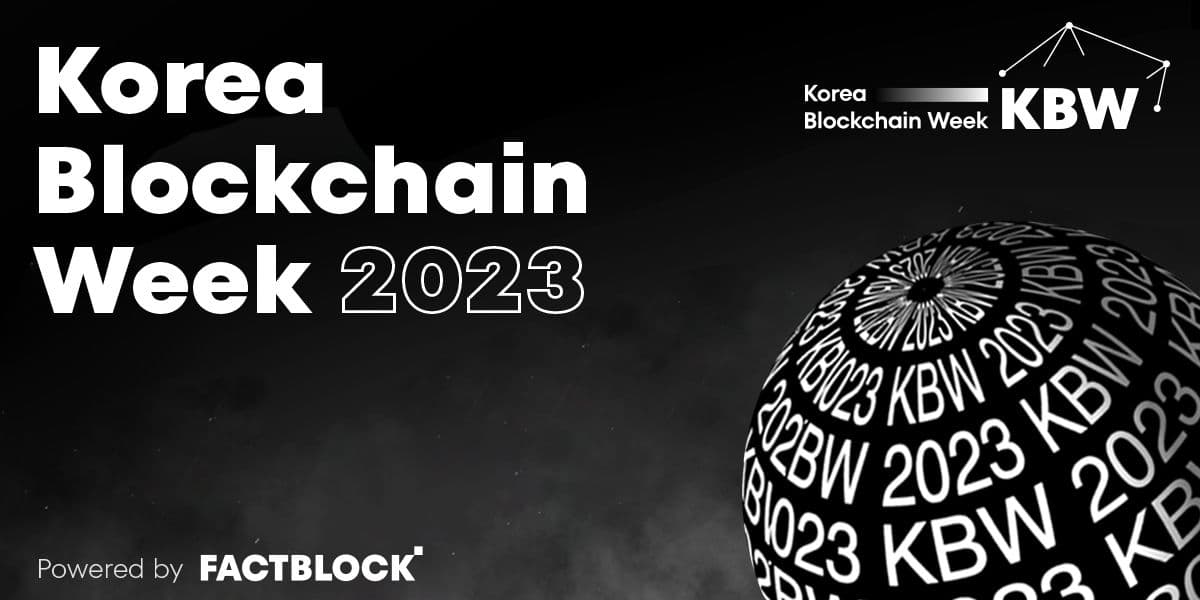Amidst the turbulence of a web3 bear market in the West, all eyes are turning towards Asia, particularly Japan and South Korea, for pioneering innovation in the web3 game economy. This shift in focus was unmistakably evident at Korea Blockchain Week in Seoul, where the enthusiasm for web3 technologies, especially in gaming, was palpable among attendees, though it's important to note that this was a self-selected group of industry enthusiasts.

During a fireside chat, Yuga Labs CEO Daniel Alegre underscored South Korea's consistent lead in various gaming sectors, such as esports and free-to-play. With numerous web3 projects already underway in a country where playing them isn't yet legal, there's a sense of anticipation for a similar trend in web3.

Now, let's delve into the key announcements from this event.
Wemade's Ambitious Roadmap
Wemade, a prominent sponsor of the event known for its Wemix blockchain and Mir series of games, unveiled its growth roadmap. Currently hosting 32 games of varying quality on the Wemix platform, Wemade introduced "unagi" (Unbound Networking & Accelerating Growth Initiative), a cross-chain solution designed to facilitate asset management and transfers across different blockchains. The una wallet, set for release in Q4, will support eight chains, including Ethereum and Avalanche, though Immutable and Solana notably remain absent.

While the system appears tailored for Ethereum Virtual Machine (EVM) blockchains, its potential to simplify asset transfer within the Wemix ecosystem is apparent. This could be a significant step in streamlining participation in the web3 economy of Mir M.

Planetarium's Web3 RPGs
Planetarium Labs, creators of MMO Nine Chronicles, announced two new web3 RPGs: Immortal Rising 2 and Verse8. Immortal Rising 2, a competitive mobile idle RPG, is set to incorporate web3 elements like tokens, though details remain forthcoming. Verse8, on the other hand, positions itself as an "open-source decentralized roguelike RPG protocol," aimed at facilitating the creation of individual RPGs using shared toolsets, with a focus on multiplayer experiences, gaming communities, and virtual economies.

Planetarium Labs' expertise in decentralized multiplayer technology through Nine Chronicles suggests a potential application of this technology in their newly-announced projects, though explicit confirmation is awaited.

Netmarble's Unified Economy
South Korean mobile publisher Netmarble shared significant news through its Marblex blockchain division. Stella Fantasy from Ring Games will become the first game to implement the new gMBXL token and tokenomics framework. This decision also marks Stella Fantasy as the fifth and only non-Netmarble game integrated into the Marblex ecosystem. Netmarble's venture into the web3 space has been marked by both successes and setbacks, with notable titles like Ni no Kuni: Cross Worlds and The King of Fighters ARENA.
Recognizing the challenges of managing individual tokenomics, Netmarble seeks to simplify the web3 experience by introducing a single currency, gMBXL, for all games within its ecosystem. This move aims to enhance token utility across multiple games, although it carries some risk regarding potential arbitrage opportunities.

Story Protocol's Democratizing Vision
Story Protocol, which hosted a fireside chat on IP infrastructure, also secured a $54 million funding round led by a16z. Their mission is to democratize IP creation using blockchain technology, extending beyond games but with a focus on the gaming industry. They plan to leverage blockchain for transparent attribution, automated royalty payments, and facilitating contributions, remixing, and monetization. The potential integration of NFT projects in games and improved interoperability is also on their radar.

Final Thoughts on Web3 Gaming in South Korea
These announcements collectively demonstrate a strong belief in web3 gaming within South Korea. Language barriers may hinder Western audiences from fully appreciating the high-quality web3 games in the Korean pipeline. While tokenomics models still require refinement, there's a clear intent to learn from past projects like Axie Infinity to avoid similar pitfalls.
However, South Korea's nationwide ban on games featuring NFTs or cryptocurrencies remains an obstacle. The promise of lifting this ban has yet to materialize, given the complexities of lobbying and government policy in South Korea.
Despite these challenges, South Korean developers persist in creating web3 games, often with elements adjusted to comply with regulations. The highly anticipated Nexon's MapleStoryUniverse, with its 20-year history and dedicated fanbase, could be a game-changer if executed well.

In summary, South Korea's unwavering commitment to web3 gaming, despite obstacles, positions it as a pioneering force in the industry. The future of web3 gaming in South Korea is undoubtedly one to watch closely.
